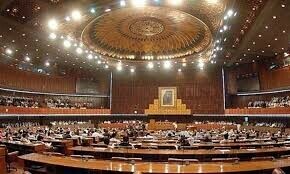KARACHI: Assailing the judiciary for supporting dictatorships and alleged interference in constitutional matters, as well as the inordinate delay in disposal of cases, PPP Chairman Bilawal Bhutto-Zardari vowed to support the proposed constitutional court, calling it an unfulfilled part of the Charter of Democracy.
The constitutional court is mandatory for strengthening the judicial system, ensuring speedy dispensation of justice and bridging disparities among the provinces, the PPP chairman said while addressing the Sindh High Court Bar Association on Tuesday.
He said he did not come to seek support for any bill from the legal fraternity, or talk about any government-proposed amendment, but to speak about the Charter of Democracy and his party’s very simple and focused proposal was to from a federal constitutional court and to make reforms regarding appointment of judges of higher judiciary.
However, he also clarified that his party stands against any legislation aimed at benefiting or harming an individual and added that that the constitutional court would provide equal representation to all provinces, with the position of chief justice rotating among them.
Calls it ‘unfulfilled part’ of Charter of Democracy; says move essential to strengthen judicial system, bridge disparities among provinces
The formation of a constitutional court and judicial reforms were the vision of his slain mother Benazir Bhutto, which was the part of the Charter of Democracy signed by her and ex-premier Nawaz Sharif in 2006, he said.
The procedure about appointment of higher judiciary was laid down in the 18th Amendment following examples like that of the United States, where legislators hold such powers, he added.
Mr Bhutto-Zardari alleged that judges attempted to give themselves the power to legislate. “This is now proved beyond any reasonable doubt in Pakistani politics, look at the last 15 years if you’re not going to look at the last 70 years, our judicial system is broken,” he remarked. He noted that the history witnessed how judges had allowed dictators to undertake actions that kept democracy and the Constitution at bay for decades. He regretted that some judges permitted dictators to amend it.
He was also of the opinion that former chief justice Iftikhar Chaudhry was “not a revolutionary but a PCO [Provisional Constitution Order] judge” and before his tenure as top judge, Benazir Bhutto had decided to establish a constitutional court, initiate judicial reforms, and ensure timely justice for the people.
Focus on political cases
Around 90 per cent of the judiciary’s time is spent on political cases, which constitute only 15pc of the total cases and if the judges are serious about providing justice to the public, institutions should be allowed to focus on the work they were established for, Mr Bhutto-Zardari said.
The PPP chairman also mentioned the long struggle revolving around Articles 58(2)(b) and 63(A), which were used as tools to unconstitutionally dismiss democratic governments, and asserted that later, the courts had adopted such powers by dismissing elected prime ministers and amending the Constitution themselves through rulings on Article 63(A).
He explained that the proposed amendment to Article 63(A) was not previously part of the law and under such amendment, members of parliament were required to follow their party’s line on constitutional amendments, annual budget, and no-confidence motions, but they still retained the right to cast their vote. In the said article, it was written that if any parliamentarian votes against the party line on these crucial matters, their vote would still be counted, however, neither we nor any court has the authority, nor should we have it, to force a parliamentarian to strictly follow the party line instead of his conscience, he maintained.
“The decision on Article 63(A) was given with a specific intent and we do not want floor-crossing to be easy; we want strict punishment for those who do it,” he said. As lawmakers face the risk of by-elections in their respective constituency as a result of floor-crossing, they think very carefully before casting their vote, he added.
Published in Dawn, September 25th, 2024















































Dear visitor, the comments section is undergoing an overhaul and will return soon.